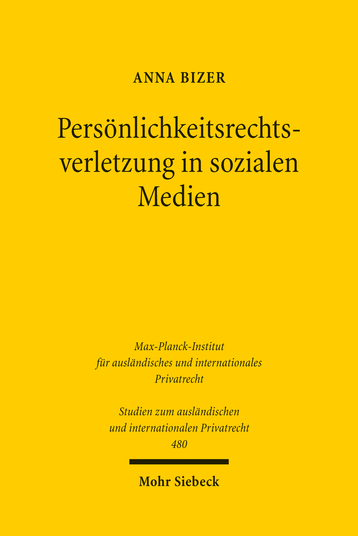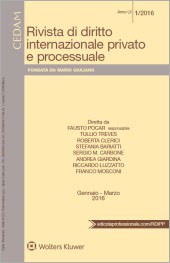
The Private Side of Transforming our World
UN Sustainable Development Goals 2030and the Role of Private International Law
September 9-11, 2021, Hamburg, Germany,
Max Planck Institute for Comparative and Private International Law
By Madeleine Petersen Weiner and Mai-Lan Tran
The Max Planck Institute for Comparative and Private International Law hosted a hybrid conference on the Institute’s premises, and digitally via Zoom, under the above title from September 9-11, 2021, on the occasion of the publication of the nearly 600-page anthology “The Private Side of Transforming our World – UN Sustainable Development Goals 2030 and the Role of Private International Law”.
The Sustainable Development Goals (“SDGs”) include 17 goals for sustainable development. Formulated by the United Nations in 2015, they form the core of the 2030 Agenda and aim to enable people worldwide to live in dignity while respecting the earth’s ecological limit. Fighting poverty and other global ills, improving health and education, reducing inequality and boosting economic growth while combating climate change are the themes of this agenda, also referred to as a “contract for the future of the world”. In Public Law, including International Law, SGDs have already established themselves as a subject of research. This has not been the case for Private Law so far. The project “The Private Side of Transforming our World – UN Sustainable Development Goals 2030 and the Role of Private International Law” addresses this research gap identified by the editors and organizers of the conference, Ralf Michaels, Director of the Max Planck Institute for Comparative and International Private Law (D), Verónica Ruiz Abou-Nigm, Senior Lecturer at Edinburgh Law School , University of Edinburgh (UK) and Hans van Loon, former Secretary General of the Hague Conference on Private International Law (NL). The project‘s aim was to raise awareness that Private International Law („PIL“), with its institutions and methods, can also make a significant contribution to achieving these goals.
The conference was structured around the individual SDGs and was divided into six overarching thematic blocks. Renowned and emerging scholars from around the world presented excerpts from their research for the anthology on the relationship between PIL and each of the SDGs. Following the contributions of the individual speakers, discussants for each thematic block pointed out connecting lines and questions within the respective clusters and stimulated the discussion on the podium with initial questions and sometimes provocative theses. Afterwards, the floor was opened to questions from the audience. Next to the organizers, Maria Mercedes Albornoz, Centro de Investigación y Docencia Económicas (MEX), Duncan French, University of Lincoln (UK), and Marta Pertegás, Maastricht University (NL), took on the role of discussants.
The mix of speakers as well as the audience were very international, also thanks to the hybrid format. The English-language conference was translated simultaneously into Spanish for the audience dialed in via Zoom.
After a warm welcome by the organizers, the conference kicked off with the “Basic Socio-Economic-Rights” cluster. The first speaker, Benyam Dawit Mezmur, University of the Western Cape (ZAF), focused on SDG 1 “No Poverty”. He stated that this was a very ambitious goal and that the COVID-19 pandemic had actually increased poverty in the world. He went on to point out that it was the poverty of refugee children that needed to be addressed. PIL could contribute to this by simplifying the recognition of status.
Jeannette Tramhel, Organization of American States (USA), then commented on SDG 2 “No Hunger”. She talked about an “elephant in the room” in the goal of eliminating world hunger by 2030, referring to the discussion of whether the industrial agri-food system (“Big Ag“) was the solution to the puzzle, or rather its cause. This “elephant” then ran not only proverbially but also figuratively through her presentation. She then addressed harmonized regimes such as the Hague Conference on Private International Law 2005 Choice of Court Convention, which she believes provide an effective contribution to the goal. Avoiding parallel proceedings, she said, would also be beneficial for internationally operating companies in the agricultural and food sectors.
This first set of topics was concluded by the presentation of Anabela Susana de Sousa Gonçalves, University of Minho (PRT), on SDG 3 “Good health and well-being”. She first talked about telemedicine and e-health platforms with cross-border functions. With these resources, universal health coverage and healthcare as such – even in the poorest countries of the world – could be supported by PIL.
After a joint lunch break, the participants turned their attention to the second set of topics, “Energy, Work and Infrastructure.” Nikitas E. Hatzimihail, University of Cyprus (CYP), kicked off the session. He spoke on SDG 7 “Affordable and clean energy”. He advocated using the regulatory function of PIL to help achieve some harmonization of regulatory standards at the global level and thereby contribute to the efficient achievement of regulatory goals.
Ulla Liukkunen, University of Helsinki (FIN), then outlined the main findings from her chapter on SDG 8 “Decent Work and Economic Growth”. In her presentation, she spoke in favor of broadening the perspective on existing regulatory approaches in PIL. Workers’ rights should be placed at the center, and laws as well as legal practices should also be evaluated from this point of view.
In the third and last presentation on the topic, Vivienne Bath, University of Sydney (AUS), dealt with SDG 9 “Industry, Innovation and Infrastructure”. She elaborated on PIL’s fundamental role in infrastructure projects, starting with contractual issues and ending with dispute resolution. Summing up, she argued for an approach that was more concerned with sustainability than with enforcing the commercially based doctrines of choice of law autonomy and the importance of binding parties to their choice of forum.
A short coffee break refreshed the speakers and the audience for the final set of topics of the day, “Education, Gender and Socio-Economic Inequality.” Here, first Klaus D. Beiter, North-West University, Potchefstroom (ZAF), gave an insight into his findings on SDG 4 “Quality Education”. At the outset, he emphasized his difficulties in even recognizing a link to PIL, since education is a central task of the state. However, according to Beiter, the link becomes clear when one observes the progressive privatization of the education sector. He identified as a problem that shortcomings in the education sector on the part of the state in the Global South were being systematically exploited by companies in the global North. PIL thus must be further developed in order to offer more protection to the “weaker” actors in the education sector.
Gülüm Bayraktaro?lu-Özçelik, Bilkent University, Ankara (TUR), followed by highlighting the role of PIL in achieving SGD 5 “Gender Equality”. She showed that gender equality issues can play a role in all traditional areas of PIL (such as applicable law or jurisdiction) as well as specifically in the recognition of marriages. On the one hand, a one-size-fits-all approach would not do justice to all areas. On the other hand, the opportunities of cross-cutting soft law instruments, such as the guiding principles for the realization of gender equality, also in cross-border matters, should not be negated but further explored.
Lastly, Thalia Kruger, University of Antwerp (BEL), spoke on SDG 10 “Reduced inequalities”. Inequality exists on many levels and plays a role in many different places in PIL. In her presentation, she focused on tort law. Inequality could be countered by adequate compensation of the injured parties by the damaging parties. She also expressed her disappointment at the failed attempt to create a new conflict of laws provision in the Rome II Regulation for human rights violations. A draft by the European Parliament’s Legal Affairs Committee had envisaged giving injured parties the right to choose between four possible applicable legal systems. Criticism was voiced that the right of choice would create too much legal uncertainty for companies. Kruger countered that companies would simply have to comply with all and thus the highest standard of the four possible applicable laws.
The first day culminated in the live book launch of the anthology at Intersentia. In order to make it available to as many people as possible worldwide, it was made freely accessible online (open access) at www.intersentiaonline.com – the current preliminary version soon to be replaced by the final text. A PDF version of the book will also be available for free download on the website, as will print versions of the book.
The second day of the conference began with a presentation by Eduardo Álvarez-Armas, Brunel University of London (UK) and Université catholique de Louvain (BEL), on SDG 13 “Action on Climate Change”. Using the example of the recent lawsuit of the environmental organization Milieudefensie and other environmental associations against Royal Dutch Shell before the District Court of The Hague, which was successful in the first instance, and the lawsuit of the Peruvian farmer Lliuya against RWE AG, which has been pending in the second instance at the Higher Regional Court of Hamm since 2017, Álvarez-Armas attested to the ability of PIL in the form of Private International Law Climate Change Litigation to contribute to the realization of SDG 13.
Tajudeen Sanni, Nelson Mandela University (ZAF), also attested to the discipline’s potential in the context of transnational claims by local communities dependent on the sea and its resources, in light of SDG 14, “Life Below Water”. He advocated further development of PIL principles in light of the SDGs; the choice of applicable law should be made on the basis of which of the possible ones called upon to apply (better) promotes sustainable development.
To conclude this fourth Cluster, “Climate and Planet,” Drossos Stamboulakis, University of the Sunshine Coast (AUS), presented his insights on SDG 15, “Life on Land”. In his view, the necessary redesign of PIL to make it fruitful for sustainable development should avoid stripping PIL of its legitimacy based on technical and dogmatic answers.
Finally, the organizers were able to secure Anita Ramasastry, University of Washington, Member of the U.N. Working Group on Business and Human Rights, as keynote speaker. She was able to identify overarching leitmotifs in the debate and at the same time set her own impulses. PIL could provide guidelines for promoting responsible corporate conduct. However, transnational corporations have so far been understood by the discipline predominantly as a problem but not as (positive) actors. Against this backdrop, her recommendation was to delve deeper into what kind of positive roles business could play in the future.
The remainder of the morning was devoted to the somewhat broader topic „Living Conditions”. Klaas Hendrik Eller, University of Amsterdam (NL), kicked it off with SDG 11 “Sustainable Cities and Communities”. He was guided by the question of how PIL’s rich experience in identifying, delineating, and addressing conflicts could help create an appropriate forum for spatial justice issues in a global city.
Geneviève Saumier, McGill University (CAN), then addressed SDG 12 “Sustainable consumption and production”. In her view, PIL has so far fallen short of its potential. Provisions that ensure access to justice, especially in the case of lawsuits against transnational corporations, as well as choice-of-law rules that provide ex ante incentives for producers to comply with higher standards of potentially applicable laws could change this.
The third presentation of this set of topics was given by Richard Frimpong Oppong, California Western School of Law, San Diego (USA), considering SDG 6 “Clean Water and Sanitation”. He did not deny PIL’s supporting role in the management of water and sanitation resources. Ultimately, however, the problems associated with achieving SDG 6 were too complex and multifaceted to be solved by the traditional methods of PIL and adversarial litigation (alone).
After the lunch break, Sabine Corneloup, University Paris II Panthéon-Assas (FRA), and Jinske Verhellen, Ghent University (BEL), commented on SDG 16 “Peace, Justice and Strong Institutions” in the last Cluster “Rights, Law and Cooperation”. They put their focus on target 16.9 – legal identity in the context of migration. They showed that restrictive migration policies of the Global North counteract one of the fundamental goals of PIL, cross-border continuity. Only when issues of legal identity are separated from migration policy decisions does PIL have the potential to ensure that identity across borders has real value and enable migrants to exercise their rights.
For Fabricio B. Pasquot Polido, Federal University of Minas Gerais (BRA), who was scheduled to be the last speaker of the afternoon on SDG 17 “Partnerships to Achieve the Goals”, but was unfortunately unable to attend at short notice, Hans van Loon stepped in. In light of SDG 17, he shared his practical experience regarding cross-border cooperation between administrations and courts as former Secretary General of the Hague Conference on Private International Law. He reported on the remarkable developments in the organization’s relations with Latin America, and incrementally with the Asia-Pacific region. Looking to the future, he looked at efforts to build appropriate partnerships to Africa as well, and a possible Hague Conference convention on private international law aspects of environmental and climate change issues.
With heartfelt thanks to all participants, the organizers finally closed the public part of this extremely diverse and inspiring conference, which sees itself rather as the beginning than the end of the joint project under the hashtag #SDG2030_PIL.
On the morning of the last day of the conference, the organizers and speakers met internally to pick up on the impulses of the two previous days, to continue the threads of discussion from bilateral talks in a large group and to develop the future of the project.
The conference set itself ambitious goals in terms of both organization and content. The hybrid format, up till now untested, was a complete success and, as Ralf Michaels already pointed out in his introductory remarks to the conference, excellently reflected the nature of PIL; it united international and local levels.
In terms of content, the conference was in no way inferior to this (technical) success. On the contrary, it not only convinced speakers and discussants, who had shared their initial reservations about the PIL’s power of impact for sustainable development in the sense of the SDGs, but also convinced the audience to acknowledge the private side of the transformation of our world through the diversity and substantive precision of the contributions. It was a great pleasure and honor for the two authors of this summary to witness the contagious commitment of the project’s participants to the discipline’s assumption of responsibility for the realization of the SDGs in beautiful, late-summer Hamburg.
Madeleine Petersen Weiner and Mai-Lan Tran are doctoral candidates at the Chair of Prof. Dr. Marc-Philippe Weller at the Institute for Private International Law and International Business Law at Heidelberg University. Madeleine Petersen Weiner also works as a Research Assistant at this institute.

 Based on a tweet by the ‘enfant terrible of tech’, Elon Musk, Michael Douglas recently discussed
Based on a tweet by the ‘enfant terrible of tech’, Elon Musk, Michael Douglas recently discussed 

